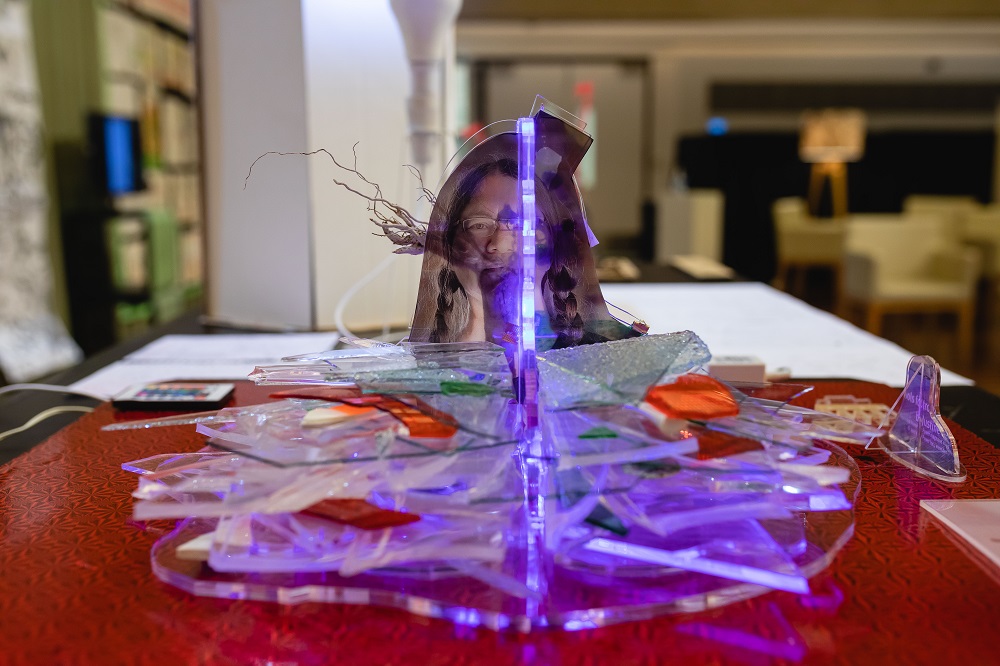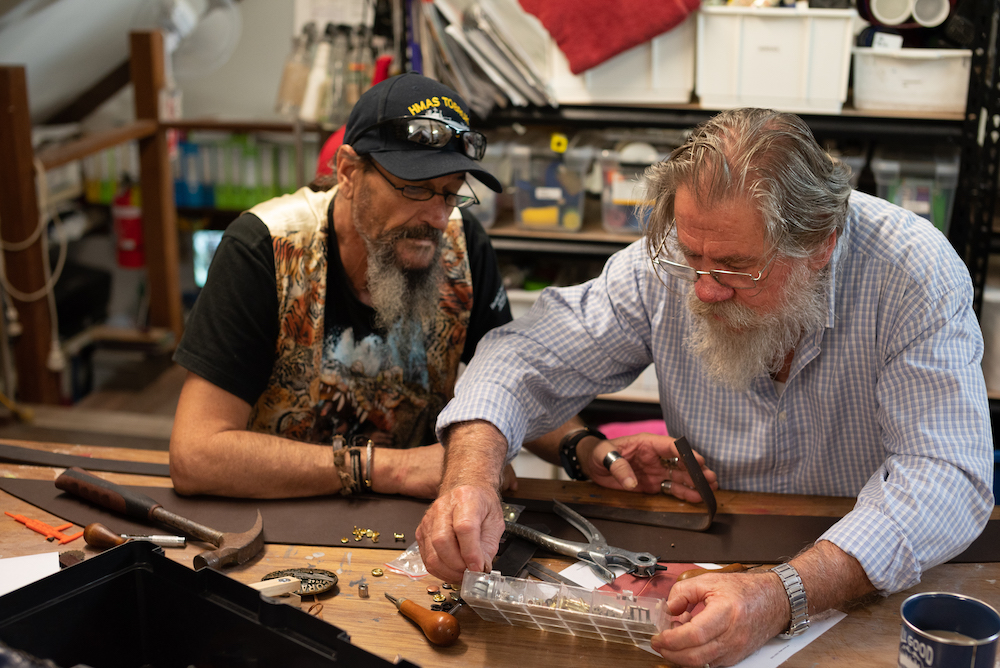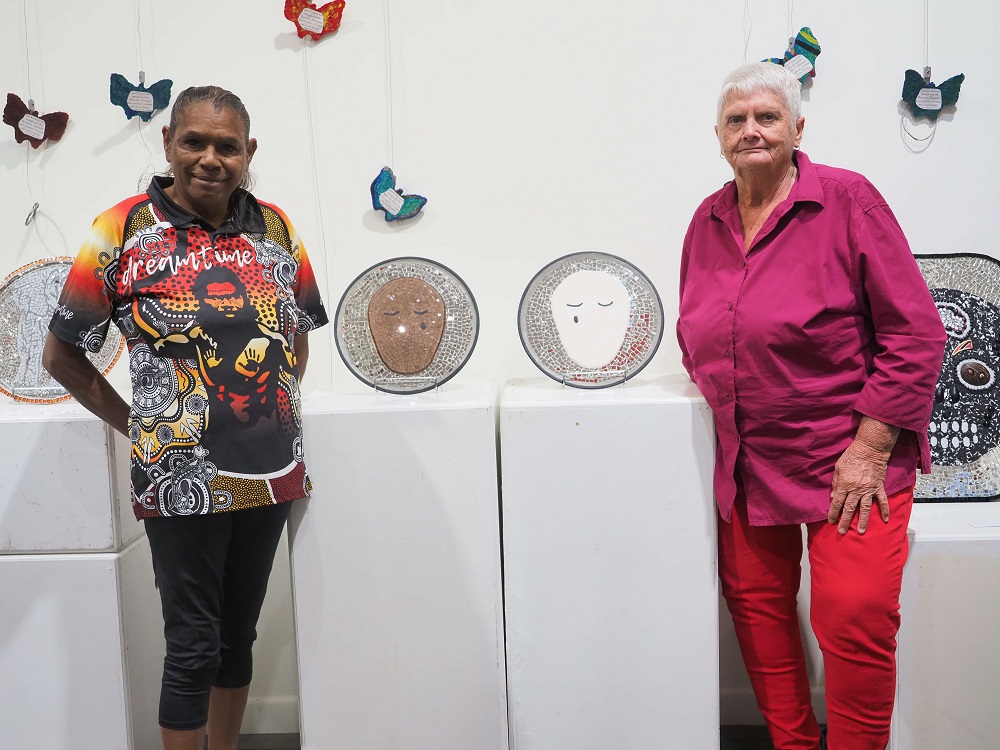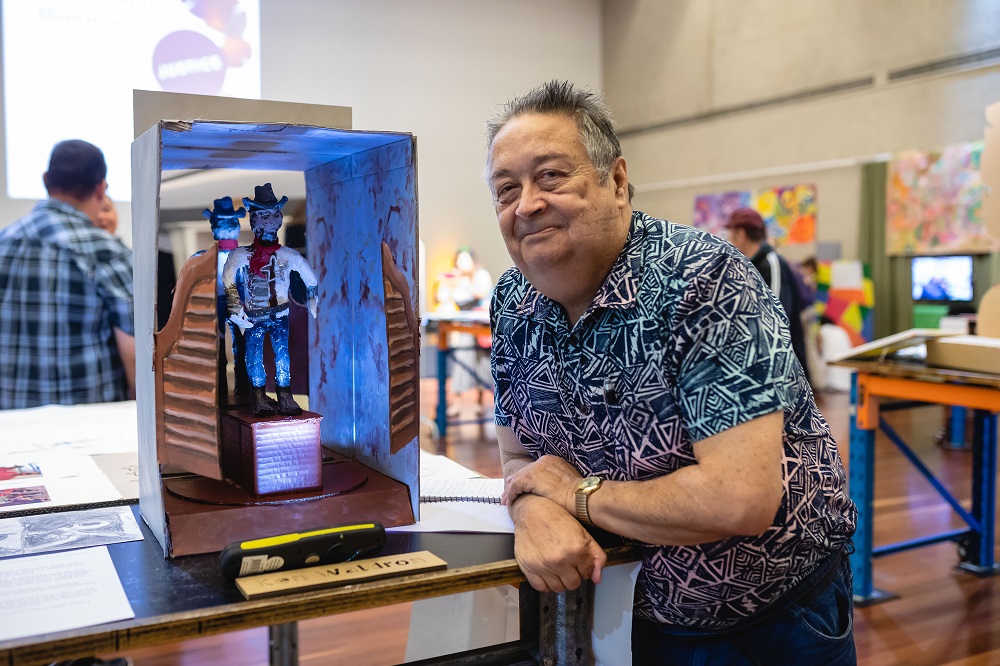
Approaching truth telling, recovery and healing through the arts
- 15 Dec 2022
Lotus Place’s Reconciling Histories project supported adult survivors of institutional abuse to reclaim their voice and connect creatively through visual arts workshops.
What
Reconciling Histories was a series of visual arts workshops delivered through Lotus Place (Micah Projects) focused on truth-telling, justice and healing for adults with lived experiences of institutional child abuse.
The project built on previous work by Micah Projects, supporting people who experienced abuse in an institutional setting to access support and share their experiences and strengths.
In developing the project, organisers noted that asking survivors to repeatedly talk about and ‘relive’ their damaging experiences took a serious toll. Therefore the Lotus Place approach for this project sought to focus on the strengths and resilience that individuals drew upon to survive, and to live rich and meaningful lives in spite of adversities.
Working with artists, art therapists and trained staff across a series of workshops, participants were supported to explore their past experiences, construct new narratives and reconcile their histories through a range of visual arts mediums – sculpture, printing, and photography.
The project engaged communities in Brisbane, Rockhampton and Townsville. At each location, the series of workshops culminated in a community exhibition.
“Participants were given the space and support they needed to play, explore, and experience art making. Ideas were exchanged and community discussion stimulated. Leading to a natural side effect of reduced social isolation and skills acquisition. A process that enabled participating artists to express themselves creatively and produce excellent art. Developing tools to get their messages across.”
Project Coordinator: Katie McGuire
When and where
22 June 2020 to 30 December 2021, Brisbane at The Edge, State Library of Queensland (SLQ); Townsville at The Hub Creative Space; and Rockhampton.
Key stats
- 3 exhibitions
- 25 Queensland artists
- 153 new works created
- 450 attendees and participants

Investment
$38,229 through Arts Queensland’s Queensland Arts Showcase Program 2020
Reconciling Histories 2021 was also supported by the Australian Government’s Regional Arts Fund and the Truth Healing and Reconciliation Taskforce, Queensland Government.
Outcomes
A strong and sustainable sector
- Skills development: Facilitating artists gained experiences in alternative delivery approaches, acquiring skills, knowledge, and experience in working with marginalised communities and participants with complex needs and histories.
Great professional opportunity for me …inspiring to see the courage and resilience of participants. – Facilitating artist
A new depth to my practice – Facilitating artist
Drive social change and strengthen communities
- Creative communities: The project connected participants, artists and volunteers with creative locations and places in their respective communities. Participants and artists noted they would continue to access these places beyond the project.
- Outcomes for participants: Workshops provided spaces and opportunities for participants to develop the tools to express themselves creatively. Many reported that their involvement in the project helped develop a stronger sense of identity and strengthened connections with each other. This in turn reduced social isolation.
- Community awareness: The project raised awareness and increased community understanding about the dark history of institutions and the ongoing impact and healing of survivors.
Sharing our stories and celebrating our storytellers
- Captured participants’ stories: Participants' experiences and stories were captured through creative workshops and then shared with the community through exhibitions.

Feedback
To be given the opportunity to express ourselves artistically and told to do it our way with no criticism was refreshing. We started as strangers and finished the project as family. – Participating artist
The roll-on effect of days spent working on this project has helped us to connect through the sharing of our histories, connection and ownership of our stories gave us a feeling of being valued and listened to. – Participating artist
One of his most significant experiences of institutionalisation was being deprived of an education. What a privilege to be involved in an amazing activity that provides an opportunity for people to regain a sense of pride, self, dignity, self-respect, and a sense of belonging in community – Participating artist
Confronting and an education. Heart wrenching – Audience member
Moving, confronting and a necessary reminder – Audience member

Learnings and reflections
Micah Projects had the following reflections on the project:
Digital stories and publications have supported participants’ recollection of strength, empowerment, belonging, and confidence they experienced during the project. They add to the legacy of both the project and the group, they are a resource for future projects.
Community Cultural Development (CCD) approach gave participating artists legitimate ownership of the project ensuring they felt valued and heard.
Micah Projects engagement in delivery of this art project facilitated a holistic approach to engage participating artists to provide wrap around supports in health, wellbeing, and housing as needed, which also supported the CCD approach.
Working in community art spaces has been especially valuable for participating artists to build a sense of connection and belonging to these spaces.
Having high ratio of support to participants enabled people to develop their ideas and take risks, knowing they have back up and support.
Allowing time enough to play and experiment. Focusing on the creative processes rather than exhibition led to reduced anxiety levels and pressure placed on participating artists.
Flexibility of engagement made program accessible.
Tips for others
When working with participants who have complex needs and histories:
- Ensure you have sufficient resources and support.
- Use a non-deficit approach to empower, strengthen identity, and build on people’s strengths and achievements.
- Listen and work collaboratively with participating artists and all involved in the project to support shared ownership and empowerment.

What next?
Participating artists’ familiarity and connection to the creative spaces opened the way for individuals to access the spaces independently and for future art workshops.
There are plans to build on Micah Projects’ partnership with The Edge in Brisbane via public access days and future workshops.
Find out more
Reconciling Histories Art Project Facebook page
Reconciling History 2021 Project – Artist Stories
Readers for whom the content of this case study raises concerns are encouraged to contact Lotus Place for support: phone (07) 3347850, email lotus@micahprojects.org.au or website www.lotusplace.org.au |
Alternatively phone Micah Projects on (07) 3029 7000.
Help is also available through
Lifeline 13 11 14, Beyond Blue 1300 22 4636, Blue Knot Helpline 1300 657 380
Image credits:
Image on Case book page: Pictured: Deslyn enjoying playing and experimenting at a workshop at The Edge, State Library of Queensland. Image courtesy Lotus Place
Banner image: On display, Works on canvas, vessels made from e-waste, cyanotypes on paper, ceramics pieces, and much more all created by participating artists in North Queensland. (at The Hub Creative Space Townsville). Image courtesy Lotus Place

